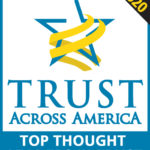 Nominations are now open for Trust Across America-Trust Around the World’s 11th annual Top Thought Leaders in Trust.
Nominations are now open for Trust Across America-Trust Around the World’s 11th annual Top Thought Leaders in Trust.
Announcement of honorees will be made in January 2021 via TRUST! Magazine.
Posts Tagged ‘trust across america’
 Nominations are now open for Trust Across America-Trust Around the World’s 11th annual Top Thought Leaders in Trust.
Nominations are now open for Trust Across America-Trust Around the World’s 11th annual Top Thought Leaders in Trust.
Announcement of honorees will be made in January 2021 via TRUST! Magazine.
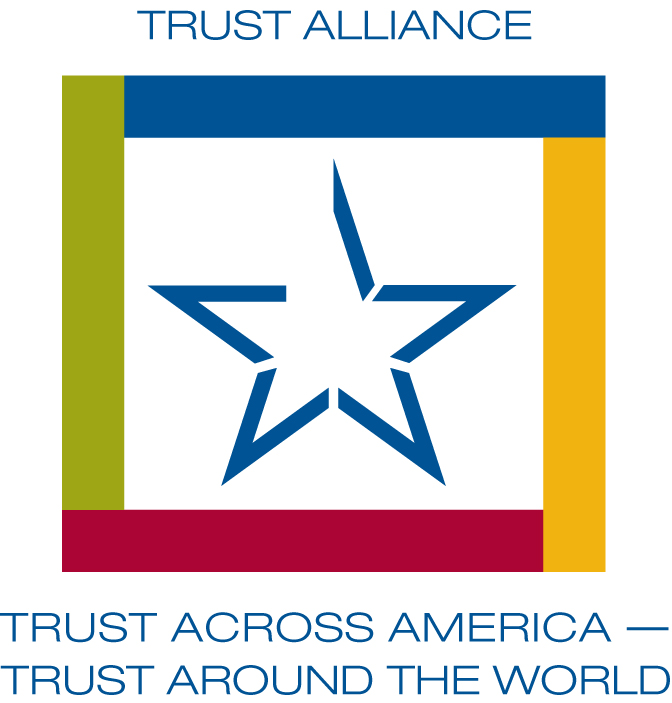 “Never ruin an apology with an excuse.” Benjamin Franklin
“Never ruin an apology with an excuse.” Benjamin Franklin
“Say you’re sorry.” As a child, how often did you hear those words from parents and teachers? While apologies become even more “complex” in adulthood, have you stopped to consider the role they play in trust repair? This week, as part of our Zoom Lunch & Learn series seven members of our Trust Alliance convened to discuss the topic of apologies in a session called “I’m sorry…but.”
Our discussion extended beyond apologies at the organizational or corporate level. We reviewed interpersonal apologies as well.
The following are some of the key take aways:
A few additional thoughts the intersection of apologies and trust for leaders and organizations facing a crisis:
Copyright © 2020, Next Decade, Inc.
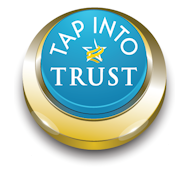 Two significant news headlines recently caught my attention:
Two significant news headlines recently caught my attention:
Why 2020 Will See the Birth of the Trust Economy (World Economic Forum)
Covid-19 Vaccine Push Lacks a Key Ingredient: Trust (Bloomberg) (links below)
Missing from both articles is a 1) A concise definition of trust and 2) a comprehensive solution.
We define trust as the OUTCOME of principled behavior.
Trust is:
Our global Trust Alliance comprised of business leaders, departmental managers, consultants and scholars worked collaboratively for over a year (2017-18) to identify the primary behaviors driving trust in teams and organizations. These 12 behaviors are our Trust Alliance Principles (TAP) and they have now been accessed, at no cost, over 140,000 times in *16 languages. The weakest behaviors break trust. Administering our AIM Assessment has shown that from team to team and organization to organization, these weak behaviors vary. In other words, elevating trust is not “one size fits all.”
AIM (an acronym for Acknowledge, Identify, Mend) uses the TAP behaviors to identify those that are breaking trust in order to have a starting place to begin a discussion on how to fix them. (We also provide resources to help our clients quickly resolve the primary weaknesses.)
Leaders and managers who acknowledge that trust is critical to organizational success and choose to elevate it to avoid the next expensive crisis, can do so in 3 steps with an inexpensive plan:
Barbara Brooks Kimmel is the founder of Trust Across America-Trust Around the World, whose mission is to help organizations build trust. Now in its 12th year, the program has developed two proprietary trust-evaluation tools, the latest is AIM Towards Trust. She also runs the world largest global Trust Alliance and is the editor of the award-winning TRUST INC. book series. Kimmel is a former consultant to McKinsey who has worked across multiple industries and with senior leadership. She holds a bachelor’s in international affairs from Lafayette College and an MBA from Baruch.
Copyright © 2020, Next Decade, Inc.
Articles cited:
www.weforum.org/agenda/2020/08/2020-birth-of-the-trust-economy/
*Download our principles as a PDF: English, Arabic, Chinese, Dutch, Finnish, French, German, Hebrew, Hindi, Italian, Japanese, Portuguese (Brazilian), Romanian, Russian, Spanish, and Swedish
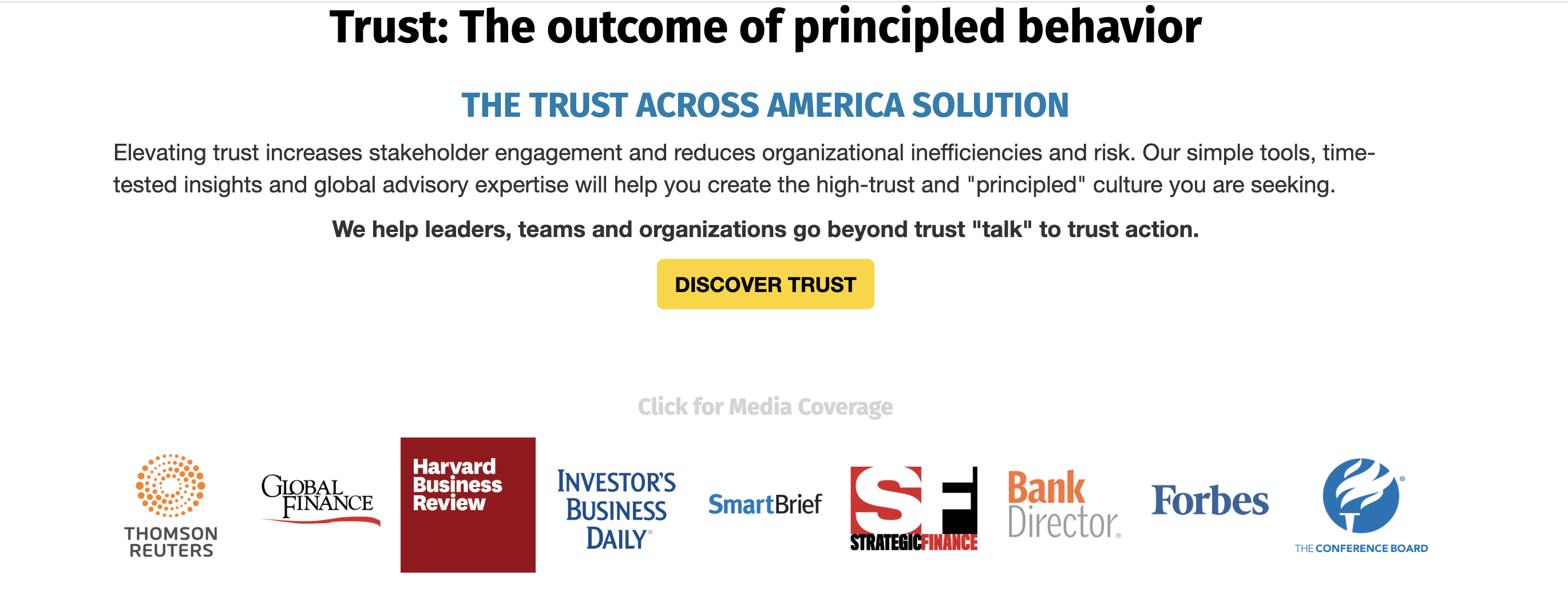 Having studied and observed trust building and trust busting behavior for over ten years, what’s crystal clear is that when people trust you, their confidence in you will increase, and they will be more inclined to do business with you.
Having studied and observed trust building and trust busting behavior for over ten years, what’s crystal clear is that when people trust you, their confidence in you will increase, and they will be more inclined to do business with you.
LinkedIn claims to have more than 700 million users in 200 countries, and the platform can be a very powerful business tool, IF your goal is to build trust with your connections. The following are ten tips on how to do this.
And now for a few surefire ways to bust trust really fast…
Having been an active LinkedIn member for many years, the balance is shifting away from thought leadership towards billboard advertising. If this is accurate, LinkedIn will surely (and quickly) lose its stature as a valuable business tool. In fact, I’ve spent the past several months deleting hundreds of self-promoting LinkedIn connections.
In summary, if the focus is simply “You,” maybe it’s time to rethink your LinkedIn strategy. Start by making “trust building” your core focus.
What other suggestions do you have for building trust on LinkedIn? Leave your comments.
Barbara Brooks Kimmel is the founder of Trust Across America-Trust Around the World, whose mission is to help organizations build trust. Now in its 12th year, the program has developed two proprietary trust-evaluation tools, the latest is AIM Towards Trust. She also runs the world largest global Trust Alliance and is the editor of the award-winning TRUST INC. book series. Kimmel is a former consultant to McKinsey who has worked across multiple industries and with senior leadership. She holds a bachelor’s in international affairs from Lafayette College and an MBA from Baruch.
Copyright 2020 Next Decade, Inc.
PS- Don’t forget to TAP into Trust!
For more information contact barbara@trustacrossamerica.com
 Our 7th Trust Alliance Lunch & Learn was held on July 23rd when we convened nine members to discuss trust and trustworthiness. This one-page presentation summarizes our findings, providing both Essential Steps and Additional Considerations for those interested in further exploring the role trust plays in organizational success.
Our 7th Trust Alliance Lunch & Learn was held on July 23rd when we convened nine members to discuss trust and trustworthiness. This one-page presentation summarizes our findings, providing both Essential Steps and Additional Considerations for those interested in further exploring the role trust plays in organizational success.
Join the Alliance to participate in our next event on August 6th at noon.
 Regardless of your occupation, job title, or the type of organization that employs you, have you ever considered the role trust plays in leadership, team and organizational success?
Regardless of your occupation, job title, or the type of organization that employs you, have you ever considered the role trust plays in leadership, team and organizational success?
And are you helping to build (or deplete) your organization’s trust bank account?
If you haven’t given any or much thought to these questions, you certainly are not alone. In fact, most people view trust as a soft skill that can simply be taken for granted. But consider this for a moment; there has never been a more critical time to acknowledge and embrace the business case for trust.* In fact, study after study confirms that over the long-term, high trust organizations outperform their low trust competitors, with the following benefits:
Using our definition of Trust as “an OUTCOME of principled behavior,” what we knew about the benefits of high trust in the past is currently amplified in our current business environment. Often, it takes a crisis to remind us what happens when trust is ignored or taken for granted.
Whether you are working in person or remotely, these are some characteristics of a high trust workplace environment. How many are currently present in yours?
How many of the following signs of low trust are present in your workplace?
Leaders who ACKNOWLEDGE that low trust is a tangible risk have taken the first step in building a trust based team and/or workplace. And acknowledgement remains the greatest obstacle in most organizations as it requires direct leadership attention and input, and some degree of vulnerability. If this hurdle can be overcome, then it simply becomes a matter of IDENTIFYING the personal and interpersonal strengths and weakness that are either building trust or busting it. They can then be discussed, MENDED and tracked. Our Trust Across America program calls this AIM Towards Trust, and the tool is being easily adopted by enlightened leaders of teams and in organizations of all sizes and across industries, providing a path forward to high trust.
If a long term approach to elevating trust is not a leadership imperative at this time, all is not lost. Here are a few short-term ideas that any team can implement during the current crisis.
Which organizations will emerge the strongest from COVID-19? Probably those whose leaders chose to place trust in the center of their business strategy before March 2020. In fact, leaders and their organizations who banked trust in advance of the pandemic are now being handsomely rewarded and will continue to be long into the future. It’s never too late to start thinking about the role of trust in leadership, team and organizational success. Why not today?
*To receive a copy of our two-page Business Case for Trust, please contact us.
Barbara Brooks Kimmel is the founder of Trust Across America-Trust Around the World, whose mission is to help organizations build trust. Now in its 11th year, the program has developed two proprietary trust-evaluation tools. She also runs the world largest global Trust Alliance and is the editor of the award-winning TRUST INC. book series. Kimmel is a former consultant to McKinsey who has worked across industries and with many Fortune 500 CEOs. She holds a bachelor’s in international affairs from Lafayette College and an MBA from Baruch.
Copyright 2020 Next Decade, Inc.
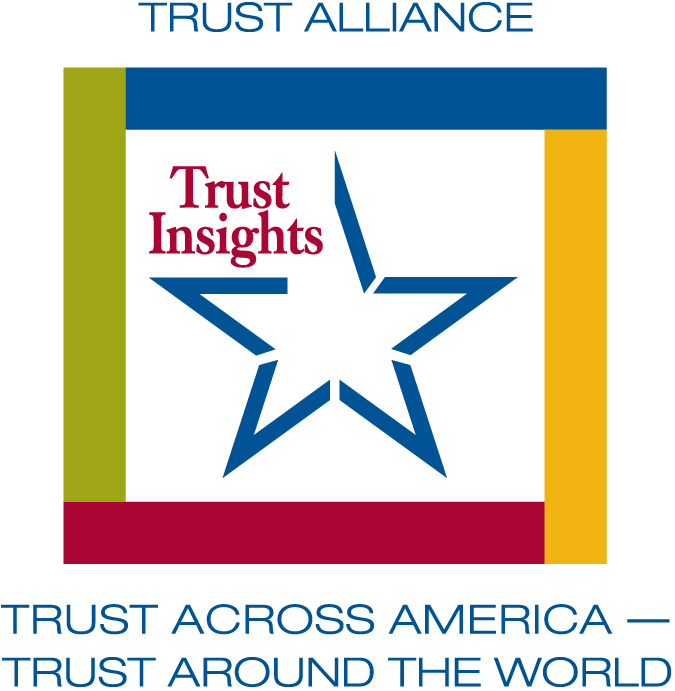 Today we conclude our 2020 Trust Insights series. Should you ever choose to think about the role trust plays on your team or in your organization, start by answering the question “Trust to do what?” and then consider the following:
Today we conclude our 2020 Trust Insights series. Should you ever choose to think about the role trust plays on your team or in your organization, start by answering the question “Trust to do what?” and then consider the following:
I hope you have enjoyed our 26-week Trust Insights series.
Before you leave, Tap Into Trust and complete our 1 minute/1 question quiz. Find out how the level of trust in your workplace compares to over 500 others.
Have you reviewed how our workshops are helping teams and organizations just like yours elevate trust? Schedule an ONLINE webinar today.
Did you miss our previous 2020 Trust Insights? Access them at this link.
Contact us for more information on elevating trust on your team or in your organization or email me directly:
Copyright 2020, Next Decade, Inc.
Trust Across America is pleased to announce the results of its annual study of the trustworthiness of America’s largest public companies. For more information contact Barbara Brooks Kimmel, CEO.
 With the right mindset (and tools) leaders can build trust in a new work environment.
With the right mindset (and tools) leaders can build trust in a new work environment.
Barbara Brooks Kimmel
Over the past few months, members of our Trust Alliance have participated in a series of Lunch & Learns. Our global membership crosses every organizational silo and we rarely view organizational trust through the same lens. Sharing our cultural perspectives and trust expertise has elevated our understanding of the nuances of this increasingly relevant and timely topic.
Working from home is just one of many “new” realities facing business leaders during this pandemic. These realities have exposed the lack of leadership acknowledgement of the role trust plays in organizational success. Now more than ever leaders MUST develop intentional trust-building strategies that are internally driven.
So once again, we reached out to our Alliance members, asking for their perspective on the trust challenges leaders should be addressing right now, and any examples of those who are stepping up to meet them.
Leaders Must Extend Trust to their Employees
According to David Belden, one of the most transformational aspects of the pandemic is the transition of the workforce to remote functioning. In working with over 400 companies for the past 22 years, the major hindrance in this transformation has been a lack of trust from leadership towards employees. Companies have traditionally felt that if they could not directly monitor their workforce, the work would not get done.
The current crisis has forced a change in that view. The results have been nothing less than astounding. In recent surveys, over 70% reported that, given the choice, they would continue to work remotely. Concurrently, companies are reporting an unexpected increase in productivity.
There are two critical aspects for a successful transition to remote work:
When these two prerequisites are met, the company has to trust that the employee will fulfill their agreed upon duties. The employee must trust that the company will act in the best interests of all of the stakeholders, particularly the employees. Without mutual trust, this new arrangement will not succeed.
Trustworthiness is a 2-way street with the leader and the team adds Kevin McCarthy. COVID19 is a tough shift in every aspect of our lives and lifestyles. Such times reveal us–particularly our varying personal health conditions, risk profiles and preferences. Leaders who acknowledge and respect these differences may honor them by providing team members, where practical, a transitional period to continue to work from home or return to the workplace as each person sees fit. Likewise, willing, but financially disincentivized, team members drawing unemployment compensation greater than or equal to their pay can do their civic duty by returning to the workforce for the common good of their co-workers, company, and country.
Elevating Trust Requires Acknowledging Uncertainty
Bart Alexander reminds leaders that crises often result in debilitating uncertainty. By saying “It’s too early, we just don’t know,” organizations reinforce collective and individual stress, even panic. Companies can translate uncertainty into manageable risk by openly sharing their best judgement, as in, “This is the worst case, this is the best case, and this is the most likely case, and if anything changes, you’ll be the first to know.” Adding the probability of each scenario will help all to be on the same page and begin to prepare. Open solicitation of ideas on how to best adapt further engages the entire organization into a shared future.
And Lea Brovedani supports these sentiments and provides an example. Leaders should be acknowledging uncertainty and showing their own humanity. They should tell what they know, what they don’t know and still take action. At this time, they need to model the duality of feeling uncertain and showing how to keep moving forward.
The first business leader that comes to mind is Satya Nadella, Microsoft’s chief executive who instructed people to work from home well before most other companies. He acknowledged feeling uncertain and worried, talking about his son who has cerebral palsy and the worries he and his wife have.
Here is a quote from an article written in the Seattle Times:
Nadella gave the interview shortly before releasing a lengthy email to his more than 140,000 employees worldwide, applauding them for their response to the pandemic and urging them to do the best they can to help others on a personal and professional level...
Nadella said in his email that Microsoft is in a position to help slow the pandemic by demonstrating leadership in the face of adversity and maximizing the company’s biggest strength — bringing people, ideas and solutions together quickly through tech. He mentioned the company’s work to bring “trusted news and facts” about COVID-19 to LinkedIn members and on Bing, while working with Facebook, Google and Twitter to bring “authoritative content” to those platforms and “combat fraud and misinformation about the virus.
Trust Will be Predicated on Employee Engagement
Ben Boyd recently wrote an article called “The COVID case for stakeholder capitalism – and the elevated role of corporate communications.” He had this to say about employees and the future of engagement. Employees have shown incredible resiliency, enduring extraordinary and ongoing change. Their continued engagement and commitment are critical to meeting the future needs and demands of the business; however, their expectations have changed over these past four months. Developing programs to engage, motivate, reassure and rebuild an organization’s workforce must be a top priority. Key questions to consider are: How will you address employees’ most basic needs related to personal safety and company hygiene? Moving toward the “next normal,” how will you assess employees’ evolving needs and expectations to ensure your leaders are authentically and empathetically connecting with the workforce?
And finally my thoughts. Business leaders have many tough decisions ahead of them. Hopefully they also have the skill set to engage their employees to help make them. Our current climate of fear has revealed just how much leaders in all societal institutions have taken trust for granted. In business, not only do employees fear for their physical and emotional safety, but also for the future of their jobs. In other words, they don’t trust their employers to keep them safe. Perhaps it’s the emotional element of trust (some call it benevolence) that are even more critical now in allaying those fears. Hard skills like leadership competence are no longer sufficient. In fact, they haven’t ever been. Emotional intelligence, an ethical mindset and empathy are the “soft” skills that build trust. Who returns to work and how to manage social distancing are the easy problems, and the ones that most C-Suite advisors will tackle first. They will also be the ones that are promoted in stakeholder communications. And if the emotional elements that have created the “fear” are not given equal weight, then we will simply return to the pre pandemic levels of low employee engagement and increasingly challenging mental health issues, while sitting six feet apart. Those “hard” decisions are the ones that will continue to separate authentic trustworthy leaders from all others. For the rest, it will be business as “usual” with a few minor and inconvenient adjustments that are the easiest to communicate.
Before you leave, Tap Into Trust and complete our 1 minute/1 question quiz. Find out how the level of trust in your workplace compares to hundreds of others.
Have you reviewed how our workshops are helping teams and organizations just like yours elevate trust? Schedule an ONLINE webinar today.
Did you miss our previous 2020 Trust Insights? Access them at this link.
Contact us for more information on elevating trust on your team or in your organization or email me directly:
Copyright 2020, Next Decade, Inc.
 Leadership ultimately comes down to creating conditions of trust within an organization.
Leadership ultimately comes down to creating conditions of trust within an organization.
Colin Powell
In honor of Memorial Day, this week’s Trust Insight comes courtesy of Colin Powell. During this brief and concise video, Powell discusses the role trust plays in leadership:
Powell’s timeless “rules” of leadership were first printed in the August 13, 1989 issue of Parade magazine and are reproduced below.
13 Rules of Leadership
Please stop by our website for additional organizational trust resources, or schedule a call to learn how we can help elevate trust in your leadership team and among employees in your organization.
Did you know that over 137,000 global professionals have Tapped into Trust? Have you?
Copyright 2020, Next Decade, Inc.
Recent Comments